Experts, Evaluation
The international committee in charge of assessing the Institut Pasteur in 2024
Published on
The committee of experts in charge of assessing the Institut Pasteur de Paris in 2024 has a strong international dimension. It includes 8 members recognized for their scientific excellence and their experience in the management of large research institutions:
- Liam SMEETH, director of the London school of hygiene and tropical medicine, chair of the assessment committee, United Kingdom;
- Michel EDDI, senior officer for sustainable development at the French ministry of higher education and research, former chairman and chief executive officer of Cirad (the French agricultural research center for international development), vice-chair of the assessment committee;
- Anne BERTOLOTTI, head of the Neurobiology Division, MRC Laboratory of molecular biology, Cambridge, United Kingdom;
- Elena CATTANEO, professor of pharmacology and director of the Laboratory of stem cell biology and pharmacology of neurodegenerative diseases, University of Milano, Italy;
- Christopher DYE, professor of epidemiology, Oxford University, United Kingdom, and former director of strategy of the World Health Organization;
- Birgitta HENRIQUES-NORMARK, professor and senior consultant physician in clinical microbiology at Karolinska Institutet and Karolinska University Hospital, Stockholm, Sweden;
- Beate KAMPMANN, professor of global health and scientific director of the Charité centre for global health and the Institut für internationale Gesundheit, Berlin, Germany;
- Pietro LIO’, professor of computational biology, University of Cambridge, United Kingdom.
The assessment will be in English. The main stages of the assessment process are the following:
- June 2023-January 2024: preparation by the Institut Pasteur of its self-assessment report, on the basis of the "Terms of reference for the assessment of the Institut Pasteur" published in June 2023 on the Hcéres website;
- January-May 2024: preparatory work by the assessment committee;
- June 18-20 2024: assessment visit of the Institut Pasteur by the committee;
- Fall 2024: publication of the assessment report.
Liam SMEETH
Chair of the assessment committee
Director of the London school of hygiene and tropical medicine.
Liam Smeeth is professor of clinical epidemiology. He has been director of the London School of hygiene and tropical medicine (LSHTM) since 2021. He is also a practising doctor in general practice.
Much of his research is based on making better use of computerized clinical data for research, and he co-led the creation of the OpenSafely resource in response to the Covid pandemic. His broad interests include disease aetiology, drug effects, genetics and non-communicable diseases in low-income settings. During his career, he has been supported by fellowships from Medical research council (MRC), National institute for health and care research (NIHR) and Wellcome. He was previously a trustee of the British Heart Foundation and a non-executive director of the Medicines and healthcare products regulatory Agency.
Since 2017, he has been a member of the strategic oversight committee for UK Biobank. He has been an elected fellow of the Academy of medical sciences in the UK since 2016.
Michel EDDI
Vice-chair of the assessment committee
Senior officer for sustainable development at the French ministry of higher education and research.
After graduating from two engineering schools, Michel Eddi defended his doctorate in 1980 at the University of Provence in energy physics. He was then recruited as a researcher by the Commissariat à l’énergie atomique (CEA) for 8 years.
In 1988, his graduation from École nationale d’administration (ENA) marked a turning point in his path since he gave up his career as a researcher to devote himself to the management of research institutions and to defining and steering public policies in various public entities. He has been deputy chief executive officer (CEO) for resources at Inra (the French research institute for agriculture) from 2005 to 2013, and chairman of the board and CEO of Cirad (the French agricultural research center for international development) from 2013 to 2021. He has been senior officer for sustainable development at the ministry of higher education and research since 2022.
Anne BERTOLOTTI
Head of the Neurobiology Division, MRC-Laboratory of molecular biology, Cambridge, United Kingdom.
Anne Bertolotti obtained her Ph.D. in 1998 from Strasbourg University (France) working on transcription. She did her post-doctoral research at the Skirball Institute of biomolecular medicine, NYU medical center, New York.
She was an Inserm investigator from 2000 to 2006 and she joined the MRC laboratory of molecular biology (MRC-LMB) at Cambridge, UK, in 2006 as a group leader. She has been head of the Neurobiology Division at MRC-LMB since 2022. Anne Bertolotti has made seminal contributions to the understanding of protein quality control mechanisms, the cellular defence against the harmful proteins that accumulate in neurodegenerative diseases as well as their manipulations for therapeutic benefits.
She was elected as European molecular biology Organization (EMBO) young investigator in 2005 and was awarded a European research council (ERC) consolidator grant in 2013. She became an EMBO member in 2013 and won the Hooke Medal in 2014. In 2017, she became a fellow of the Academy of medical sciences in the UK and received a Wellcome trust investigator award. In 2018, she won the GlaxoSmithKline award from the Biochemical Society.
Elena CATTANEO
Professor of pharmacology and director of the Laboratory of stem cell biology and pharmacology of neurodegenerative diseases, University of Milano, Italy.
Elena Cattaneo is a full professor of pharmacology at the University of Milano. She leads the laboratory of stem cell biology and pharmacology of neurodegenerative diseases, at the Department of biosciences of the University of Milano where she studies Huntington's disease with the aim of understanding its pathogenic mechanisms. She is also the co-founder and director of UniStem, the University of Milano’s Centre for stem cell research.
She graduated in pharmacy in 1986 and obtained a PhD in biotechnology applied to pharmacology from the University of Milano. She spent 3 years working at the Department of brain and cognitive science at MIT. She has been teaching as full professor at the University of Milano since 2003.
Elena Cattaneo is the author of the books "Every day between science and politics" (Mondadori, 2016) and "Armed with science" (Cortina, 2021). She is a member of the Accademia dei Lincei. In 2013, she was appointed life senator for scientific merits by the president of the Italian Republic.
Christopher DYE
Professor of epidemiology, Oxford University, United Kingdom, and former director of strategy of the World Health Organization.
Christopher Dye trained as a biologist and ecologist at York University, UK (1975-1978), but postgraduate research on mosquitoes (Oxford 1982) led to a career in epidemiology and public health, principally at Imperial College, the LSHTM and the World Health Organization (WHO), which he joined in 1996. As WHO director of strategy 2014-2018, he served as science advisor to the director general, oversaw the production and dissemination of health information by WHO press and libraries, and coordinated WHO’s work on health and the sustainable development goals (SDGs). After years of research on HIV/AIDS, tuberculosis, malaria, and Ebola and Zika viruses, he spent much of 2020-2022 investigating Covid-19 in Brazil, China and Europe.
He is a fellow of the UK Royal Society and the UK Academy of medical sciences. His most recent book is “The Great Health Dilemma: is Prevention Better than Cure?” (Oxford University Press 2021).
Birgitta HENRIQUES-NORMARK
Professor and senior consultant physician in clinical microbiology at Karolinska Institutet and Karolinska University Hospital, Stockholm, Sweden.
Birgitta Henriques-Normark’s research focuses on respiratory tract infections, especially pneumococcal diseases. The approach is translational, going from basic mechanisms of pathogenesis to epidemiological and clinical studies.
She obtained her PhD in microbiology at Karolinska Institutet in 2000. She has had several leadership appointments at the Swedish Institute for infectious disease control, and at Karolinska Institutet, such as vice dean for recruitment and academic vice president for research. She is associated to the public health Agency of Sweden.
She is an elected member of the European Academy of microbiology, American Academy of microbiology, European molecular biology Organization (EMBO), and is part of the Nobel assembly at Karolinska Institutet. She is also a member of the Royal Swedish Academy of sciences. She has received awards such as Wallenberg Clinical Scholars, the Petterkofer Award, Prix Aboensis Prize, and Torsten Söderberg Academy professorship. She was elected president of the Royal Swedish Academy of sciences in 2022.
Beate KAMPMANN
Professor of global health and scientific director of the Charité centre for global health and the Institut für internationale Gesundheit, Berlin, Germany.
Beate Kampmann holds an MD from Köln Universität and she defended her PhD in microbiology and immunology in 2000 at Imperial College in London.
She trained as a clinician-scientist in Germany, France, USA, South Africa and the UK. She worked in UK in both research and National health service (NHS) for 25 years. In 2018, she joined LHSTM where she became professor in paediatric infection and immunity, and director of the vaccine centre. Over the last 12 years, she divided her working time between London and The Gambia, West Africa, where she led the vaccine research at the MRC Unit-The Gambia in West Africa and where her research projects and PhD student supervision continue.
Since 2023, she has been professor of global health and scientific director of the Charité centre for global health and the Institut für internationale Gesundheit, Charité Virchow campus in Berlin. She is a fellow of the Academy of medical sciences in the UK, of the Royal College of paediatrics and child health in the UK and of the West African College of physicians.
Pietro LIO’
Professor of computational biology, University of Cambridge, United Kingdom.
Dr Pietro Lio’ is a full professor at the Department of computer science and technology of the University of Cambridge and he is a member of the Artificial intelligence (AI) group.
He received a MA from Cambridge and a PhD in complex systems and nonlinear dynamics from the University of Firenze (1995), as well as a PhD in theoretical genetics from the University of Pavia (Italy). His research interest focuses on developing artificial intelligence and computational biology models to understand disease complexity and address personalized and precision medicine. The current focus is on graph neural network modelling.
He is a member of various organizations, including the Cambridge centre for AI in medicine, the Cambridge BIG data or the Academia Europaea. He was awarded many grants; current grants are including Mark Foundation, Horizon 2020, Nerc, GSK and AstraZeneca, EPSRC, Armstrong.



